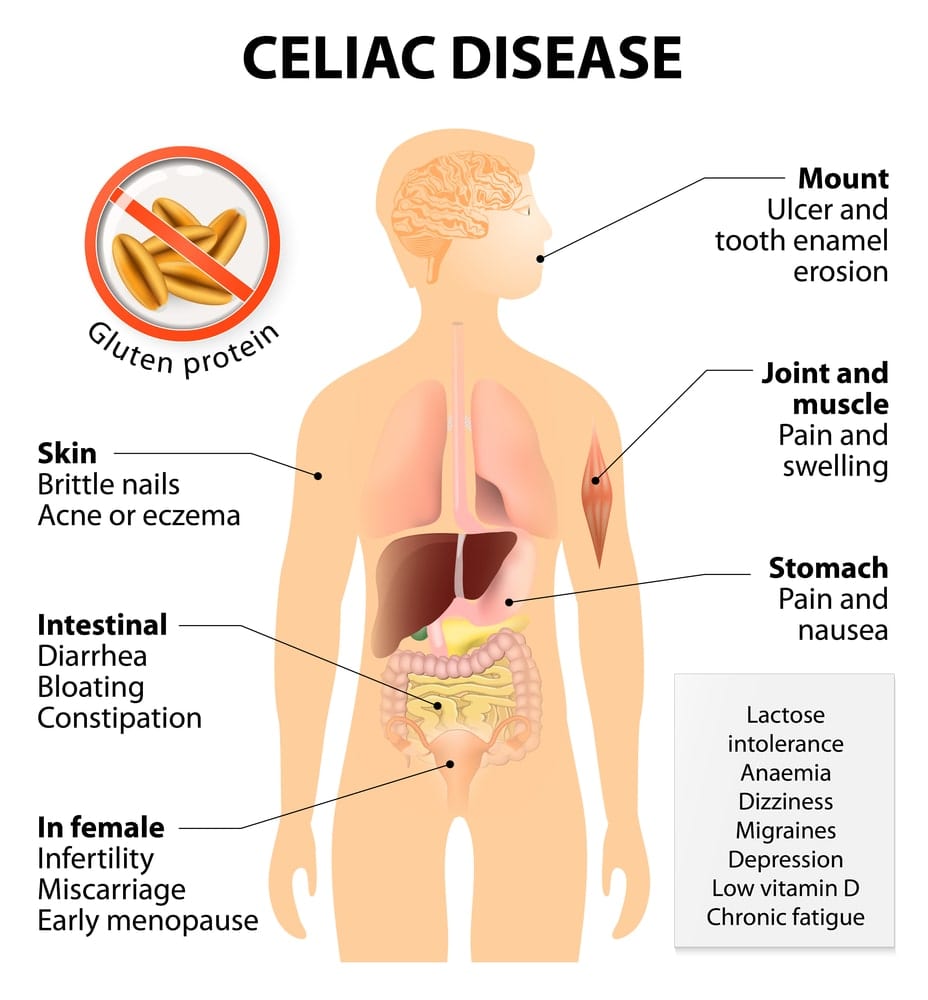Las Vegas Gluten Intolerance Treatment
Gluten Intolerance Treatment in Las Vegas
Awareness of celiac disease, wheat allergies, and gluten intolerance has significantly increased over the last decade or so. Symptoms related to gluten intolerance were long seen as over exaggerations of mild discomfort that everyone experiences from time to time, such as brain fog, fatigue, and stomach upset. Recent research has led to a greater understanding, and thus far more diagnoses of gluten intolerance-related diseases like celiac disease.
Do you suspect that you may have celiac disease or another type of gluten intolerance? Schedule a consultation with Dr. Chanu Dasari, a top Las Vegas gluten sensitivity specialist. He can evaluate your symptoms and recommend the best treatment plan for you.
What Is Gluten?
Gluten is a storage protein naturally found in cereal grains such as wheat, rye, and barley. It is the compound responsible for the soft, elastic texture of baked foods, and also helps leaven and maintain the moisture in grain-based foods like bread and pasta. Because of these desirable culinary properties, it is also used as an additive in processed foods to improve the product’s texture and moisture.
Common foods where gluten can be found include:
- Bread
- Pasta
- Crackers
- Pastries
- Veggie burgers
- Soy sauce
- Some salad dressings
- Sauces and gravies
- Flavored chips
- Beer
- Certain kinds of wine
- And many, many more.
Check the back of the labels of the items in your pantry— chances are, at least half of them (if not the vast majority) contain some form of gluten.
Symptoms Of Gluten Intolerance
Many people who have gluten intolerance may not be aware of it, as the symptoms can resemble those of many other conditions. People who experience these symptoms often brush them off as regular, nonmedical ailments. You may be suffering from gluten intolerance if you frequently experience:
- Brain fog
- Fatigue
- Joint pain
- Headaches
- Bloating
- Digestive problems
- Skin problems
- Depression and anxiety
Though this list contains many items that are seemingly unrelated, suffering from a slew of these symptoms may actually point to gluten intolerance.
Las Vegas Gluten Intolerance Diagnosis
The first thing your doctor will want to test for if you suspect that you have gluten intolerance is celiac disease.This is an autoimmune disease that leads to damage in the lining of the small intestine when gluten is ingested. A blood test is typically required for this diagnosis. Your doctor may also want to perform an endoscopy to analyze the lining of your small intestine for any abnormalities.
Celiac disease isn’t the only form of gluten intolerance, though it is perhaps the most well-documented. Gluten sensitivity could be the next diagnosis that you explore, though there are few proven methods of conclusively testing for this. Your doctor may analyze your blood test results and look for a positive AGA-IgG blood test, which indicates the presence of gluten antibodies and points to gluten sensitivity. They may also simply recommend that you adopt a gluten-free diet and monitor how it affects you. If you feel better, then you can safely say that you have gluten intolerance.
Gluten Intolerance Treatment Options in Las Vegas
Currently, the only known treatment for all types of gluten intolerance, including celiac disease, is adhering to a gluten-free diet. Dietary experts don’t all agree on how strict a gluten-free diet should be— some think that all gluten should be permanently eliminated, while others believe that small amounts of it on occasion will cause little harm.
There are no known health benefits of removing gluten from your diet if you are not gluten intolerant. If all of your test results have come back negative, and eliminating gluten from your diet does not help you feel better, you may add it back to your diet. Because symptoms of gluten intolerance are commonly associated with other conditions, you should consult your doctor about the next step to finding a diagnosis for your discomfort.
Las Vegas Gluten Intolerance Treatment Expert Dr. Chanu Dasari
Dr. Dasari is committed to providing the best care to all of his patients. He is an affiliate of Henderson Hospital, providing the best inpatient and outpatient surgical care closest to his patients. If you believe that you may be suffering from gluten intolerance and would like to have your symptoms evaluated by Dr. Dasari, contact his clinic, Minimally Invasive Surgery, at (702) 602-6600 to schedule a consultation.










